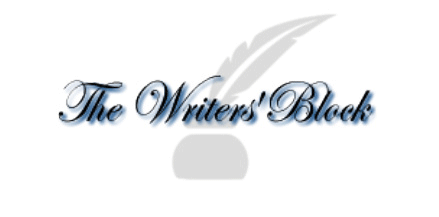Updated Critiquing Basics for Writers and Readers

This article is intended to help new members of The Writers' Block and members who have been there for a while but are uncertain about their abilities to provide feedback to others. If you're trying to compare yourself to @carolkean, @rhondak, or @thinknzombie, you may feel a bit incompetent. But every one of us on the Block started somewhere and every perspective is valuable.
All the workshops are intended to run in a peer review fashion. This means that your work is reviewed and critiques are provided by writers like you. Yes, some have more writing background, more educational background, or more experience than others. But in terms of the peer review system, we are all considered equals.
While the hesitancy to dive in and make comments is understandable, you do have a valuable perspective, regardless of your background.
We’re used to thinking about how much writers put themselves out there when they submit for critique, but the truth is that critters put themselves out there just as much when they make an honest comment in a critique. We dread making fools of ourselves. We fear we are wrong when others have read before us and didn’t flag that a sentence confused them or a scene felt off. We bare our souls when we crit as well as when we write.
There is one simple line to remember here.
If you can read and you can think, you can crit productively.
The grammar stuff--that’s the trivial part of critting. People can edit grammar without understanding the content at all. So quit fretting if you don’t feel comfortable with that part. Just focus on the content instead.
While many of these points are a bit specialized towards fiction, the basic ideas are relevant to all the writing workshops.
Basic Rules of Being a Good Critter
- Be honest. Don’t say something is wonderful if it isn’t. That doesn’t help anyone.
- Be polite. If you’re a writer, you know how it feels to be on the other side. Try to be careful with your wording. Not to the point of packing things up in bubble wrap, but don’t be mean about it. Don’t say the whole thing sucks. Say “This story didn’t work for me,” and, as best you can, a few points why it doesn’t work.
- Try to point out something positive, even if small. Sometimes we get so lost in the story that we forget to point out that you’re doing a very good job at suspending our disbelief, or your characters are amazing, or whatever else wonderful things you are doing. But as writers, we know how much those few words of praise can counteract the sting of having some words you’d agonized over cut.
- If you aren’t sure about something, it’s okay to say that. You can put a comment at the end of the piece that says you read it but you aren’t sure how you feel about it. Or that you don’t have anything to add beyond other comments. You can highlight a sentence that doesn’t feel right even if you don’t know what’s wrong with it. One possible explanation is “awkward.”
- Trust your gut. If you do much reading and thinking about what you read, you have a certain instinct or gut sense about things. Trust that and develop it. So if your gut is saying something is wrong here, flag it. Explain what is bothering you the best you can.
- You’re allowed to contradict the “big guns.” Much of reading is down to taste. Maybe you are closer to the target audience of the piece than this “big gun” you are afraid to contradict. Maybe they’re wrong (collective gasps of dismay). Or maybe you are thinking, “Since @bex-dk already read this piece and didn’t flag this, it must be fine.” Well, maybe I was having a bad day and missed it. Maybe I had read an earlier draft that you didn’t, so had a picture in my head left-over and your fresh eyes have caught a very important detail. So flag it!
But What Should I Look For?
When you get right down to it, all critting is based on reader reactions. So go through it as a reader. Here are examples of some of the points you can consider:
- Can you get into the story? Is the author able to suspend your disbelief so you aren’t constantly thinking things are ridiculous?
- Is the author consistent with the world, characters, plot, etc.? Anything that feels contradictory to something elsewhere you should mark.
- Does the story or a character speak to you? Are you feeling a connection to something?
- Does an individual line/paragraph/scene add to or detract from the story? Maybe there’s a part that you just don’t understand why it’s needed. Or maybe you were really into the flow, but then something interrupted you.
- How is the pacing and flow of the story? Does it go too fast, does it drag, or maybe there are speed bumps?
- Do you think you understand what the writer means or are you quite simply left confused?
This is an updated and rebranded version of Critiquing Basics for Writers and Readers by @bex-dk. It is published here in its current state with her express permission. Payout is refused because the basic content has been shared previously and the updating is minimal. If you wish to support us, please consider upvoting other posts from @thewritersblock or @sft.
Are you a writer or keen to learn? Do you wish to join a community of like-minded individuals who can help hone your writing skills in the fields of fiction, non-fiction, technical, poetry, songwriting or playwriting? Join us at The Writers' Block on Discord and follow our community account @thewritersblock.

Hi @thewritersblock, I just stopped back to let you know your post was one of my favourite reads and I included it in my Steemit Ramble. You can read what I wrote about your post here.
If you’d like to nominate someone’s post just visit the Steemit Ramble Discord
Thanks for sharing this. I really hope it can help some people. Having it here makes it so much easier for our members to find it!
Nice work! Glad to see this summarized so well. If you can read, you can critique. If you can write, you can critique. Everyone has an opinion, and most writers will value a critiquer's opinion.
Have I said "Thank You" lately?
Just hanging out with you folk expands my viewpoint, encourages me, and sharpens whatever skills I may have.
Please know that clear, instructive articles like this, and The Writers' Block itself, are much appreciated!
😄😇😄

I'm really glad to see this posted. Some great tips and advice in this post.
Very nice clear article. Thx for sharing!
It’s good to re-read these basics once in a while. There are some good points we can use for critters, however if we turn things around those are also valuable for writers. Glad I found you TWB!!
I really wish you had not decline payout, I didn't catch this information the first time. Reminders are always great too.
It's not right to rehash previously published posts and hope for upvotes.
You can always upvote others of our posts to show your support. :-) We didn't feel like it had been long enough since this had been out or that it had had enough updating to warrant opening for voting.
I've never seen seen a person doing a critique referred to as critter. haha I like that.
Anyway, that was a good read. Thanks for posting.
Even writers are lazy. ;-) And it wouldn't be clear to call peer reviewers editors in this context. That would probably scare some of the people off that we are trying to encourage.
Congratulations @thewritersblock! You have completed some achievement on Steemit and have been rewarded with new badge(s) :
Click on any badge to view your own Board of Honor on SteemitBoard.
For more information about SteemitBoard, click here
If you no longer want to receive notifications, reply to this comment with the word
STOPSTOP